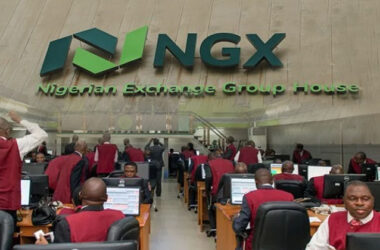All over the world, people are still struggling to come to terms with the newly popular cryptocurrencies that have come into existence. 2017 was the turning point for these cryptocurrencies as prices soared higher which attracted investors without knowing the risk involved.
A cryptocurrency is a digital token or asset designed to work as means of exchange that relies on cryptography (i.e. blockchain technology) for chaining together signatures of token transfer. They rely on peer-to-peer networking and decentralisation. Beside Bitcoin, there are nearly up to 1,000 other types of cryptocurrencies with 24 most actively used.
It’s a virtual money that runs strictly on the cyberspace. It’s a currency that cannot be seen, touch or felt, but it exist, running uncontrolled and unregulated in cyberspace..
The currency was born out of an idea for government not to be able to control personal money. It started as a white paper presentation by Satoshi Nakamoto, who also developed the white paper into Bitcoin.
People have embraced the craze by mining cryptocurrency. For the blockchain to work, transactions must be validated each step of the way. This is done by miners who modify their computers to authenticate each of the transactions solving complicated mathematical problems. The early work is done by cryptography enthusiasts.
The currencies have become widely accepted means of payment, with greater capacity and faster settlement than other traditional financial structures.
However, it use has been ban in several countries of the world including Nigeria which recently through the central bank of Nigeria issued a circular directing banks to close accounts of persons or entities involved in cryptocurrency transactions within their systems.
The ban on crypto currencies by several countries of the world has continued to generate debate among global citizens. As a matter of fact, a financial analyst, Jack Abiola said the moves is likely to render millions of people globally who are using crypto currency as a means of survival jobless.
This analysts is just one of the several thousands of global cryptocurrency optimists who are vigorously condemning the ban on crypto currency in Nigeria and other countries of the world.
Fews days after the ban of the currency in Nigeria, Tesla, an auto company announced that it has bought $1.5 billion worth of bitcoin. The company said it bought the bitcoin for “more flexibility to further diversify and maximize returns on its cash.”
Tesla, also said it will start accepting payments in bitcoin in exchange for its products “subject to applicable laws and initially on a limited basis.” That would make Tesla the first major automaker to do so. The $1.5 billion worth of bitcoin will give Tesla liquidity in the cryptocurrency once it starts accepting it for payments.
Tesla’s move into bitcoin represents an investment of a significant percentage of its cash in the investment. The company had more than $19 billion in cash and cash equivalents on hand at the end of 2020, according to its most recent filing.
The moves raise questions around Tesla CEO Elon Musk’s recent behavior on Twitter, where he has been credited for increasing the prices of cryptocurrencies such as Bitcoin and dogecoin by posting positive messages that have encouraged more people to buy the digital currencies.
The growing popularity and secrecy aspects of cryptocurrencies are beginning to attract considerable attention around the world from different demographic of people. While criminals are attracted to the features that allow for money laundering and secrecy, investors sees opportunities for large gains to go unreported.
For example, a report by United Nations Experts says that North Korea has stolen more than $300 million worth of cryptocurrencies through cyberattacks in recent months to support its banned nuclear and ballistic missile program.
Compiled by a panel of experts monitoring sanctions on Pyongyang, the report said the country’s “total theft of virtual assets from 2019 to November 2020 is valued at approximately $316.4 million”, citing a UN member state.
Financial institutions and exchanges were hacked to generate revenue for Pyongyang’s nuclear and missile development, said the report, which was seen by AFP. Hevast majority of the proceeds came from two thefts late last year.
North is known to operate an army of thousands of well-trained hackers who have attacked firms, institutions and researchers in South Korea and elsewhere.
The North is under multiple sets of international sanctions over its banned nuclear weapons and ballistic missile programmes, which have made rapid progress under leader Kim Jong Un.
These acts by criminals and investors made most governments and banks to begin to scream foul. In an attempt to nib this problem in the bud, some countries ban the use of cryptocurrencies outrightly while other countries such as U.S looked in the direction of regulating the currencies. As the talk of regulation and oversight became louder, prices of cryptocurrencies started to fall from peak in early 2018. Major banks also joined by starting to prohibit purchases of cryptocurrencies using their credit cards.
However, Japan stands alone. They were first to actually grant cyber currencies recognised status as a form of legal tender in mid-2017. As expected, that triggered the popularity of the currencies in their country and their citizens represented one-third of all Bitcoin activity by the end of 2017.
The argument supporting regulation by countries involves more than their just attempt to capitalise revenue. It also involves protecting investors and consumers from fraud, abuse and extraordinary risks. In the U.S., investors must be accredited before making large speculative investments, meaning they can afford to lose what they are investing.
It’s worthy of note that, most common actions identified accross a surveyed jurisdiction is government-issued notices about the pitfalls of investing in the cryptocurrency markets. Such warnings, mostly issued by central banks, are largely designed to educate the citizenry about the diifference between actual currencies, which are issued and guaranteed by the state, and cryptocurrencies, which are not.
Government warnings, more often than not, note the added risk resulting from the high volatility associated with many of the organisations that facilitate such transactions are unregulated. Most warnings also note that citizens who invest in cryptocurrencies do so at their own personal risk and that no legal recourse is is available to them in the event of loss.
Many of the admonitions issued by various countries also note the opportunities that cryptocurrencies create for illegal activities such as money laundering and terrorism.
Some countries go beyond simply warning the public and have expanded their laws on money laundering, counterterrorism, and organised crimes to include cryptocurrency markets, and require banks and other financial institutions that facilitate such market to conduct all the due diligence requirements imposed under such laws.
For instance, Australia, Canada, and the Isle of Man recently enacted laws to bring cryptocurrency transactions and institutions that facilitate them under the ambit of money laundering and counter-terrorist financial laws.
One has to go back to the Dot Com craze of the late 90s to witness the fear, trepidation and speculation that cryptocurrencies have created. For example, the famous corporate raider, Carl Icahn was quoted at a time as saying,. “Bitcoin and other cryptocurrencies are ridiculous.”Jamie Simon, Chairman and CEO of Chase Bank once said; “Bitcoin will eventually blow up; it’s a fraud”









